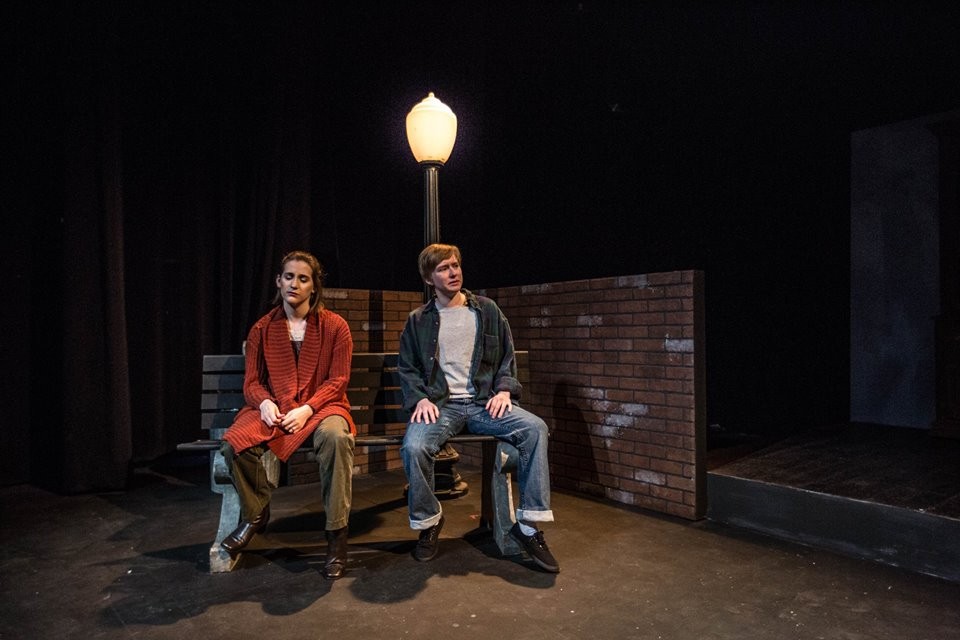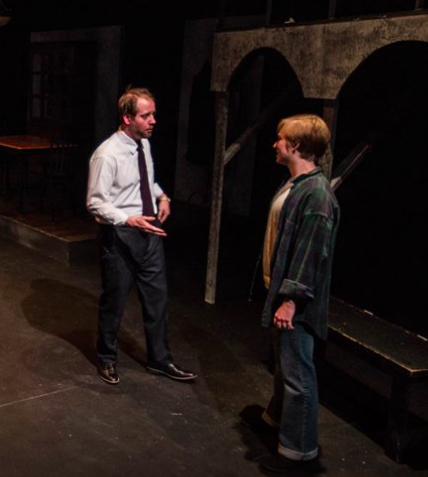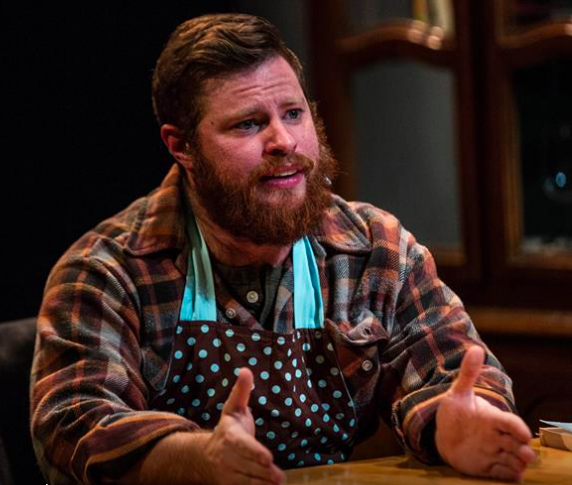
Astrid and Kate
There’s a specific Chicago train platform where Howard goes to connect with his past. That’s were he meets Mike and, after first mistaking him for a panhandler, it’s where Howard learns that this bearded transit stop vagrant is the same person who broke his heart four years ago. Only back then Mike was a woman named Kate.
Filled with questions, Howard becomes immediately desperate to rekindle romance where there was never more than friendship in the first place. It’s awkward for a number of reasons, but primarily, because he’s theoretically cis/hetero and already married to Astrid, an unsatisfied artist with a “stripper name” and a history of dancing her problems away. Howard’s basically a nice, confused doof of a guy, who wants to make his fantasy crush work out for everybody without hurting anybody, or making things weird for the people close to him. He does both of the things he doesn’t want to do pretty quickly.
How weird does it get, you ask? Aprons and fuzzy handcuffs weird.
Back When Mike Was Kate is a promising little play that might be better as a quirky little film with art direction bordering on OCD and a vintage indie rock soundtrack. Ben Kemper’s script whips elements of mystery, suspense, coming of age, and farce into a kind of romantic comedy with easy charms that almost make up for stiff expository dialogue and plot points that test belief. Also, Astrid’s not very likable, Howard is either clueless or selectively insensitive, and while Mike’s presented as something of a pleasant cypher, Kate’s so cool and complete it’s hard to imagine why he might want to enter/re-enter these evidently unhappy lives.

Howard and Kate
In keeping with past POTS@TheWorks premieres, Back When Mike Was Kate contains top notch performances by a tight ensemble comprised of Joshua LaShomb (Mike), David Hammons (Howard), Brooke Papritz (Astrid), and Ronnie Karimnia (Cameron the transit guy), with a terrific performance by R. Franklin Koch,* whose Kate is the grounded “old soul” tying the whole play together.
Mike/Kate may be the titular character but Howard and Astrid are the play’s dueling protagonists. It may even be Astrid’s play, ultimately, though she’s also the least developed among principle characters.
Director Claire Rutkauskas’ production doesn’t draw hard lines between present action and things that happened four years ago. It’s only a short temporal span, sure, but a disproportionately big leap forward in terms of where all the characters are in life. This huge juxtaposition of time-versus-change brings a faintly surreal and potentially lovely edge, like something by Sarah Ruhl, minus the flights of poetry. These possibilities are unfortunately never rigorously explored in a show that tidies up and refines threads that might want to be woolly and teased out.
Following deliberately provocative scripts like Crib, extraordinary productions like All Saints in the Old Colony, and well-crafted plays like Evan Linder’s Byhalia, Mississippi, this latest winner of Playhouse on the Square’s New Works@TheWorks series feels a little undercooked. It knows where it wants to go, but not always what it wants to say or how to accomplish its goals believably. New works are often still works in progress — even after the “world premiere.” It could be that the script remains a draft or two away from done or maybe there were some finer points glossed over in this finely acted but often chilly production. Maybe it just needs enough warmth to mistake for heat. Either way, it’s nice when playwrights find new wrinkles in old storylines, and nicer still that POTS is identifying nifty new scripts with potential to grow and go places outside the 901.
And I do hope this romcom makes it to celluloid eventually, where it can build past relationships out of something other than words and recollection.

Mike
*UPDATE: R. Franklin Koch was originally identified as Rebekka Koch per the cast list on the Playhouse on the Square website. Intermission Impossible sincerely regrets the error.